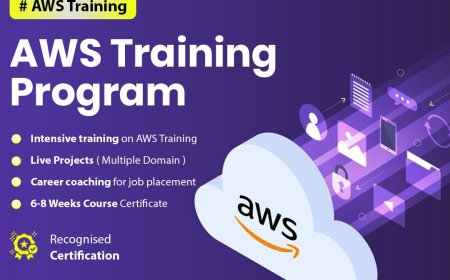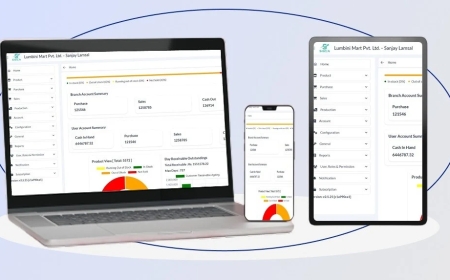Lifeguard Certification Near Me: A Step-by-Step Guide to Choosing the Right Course Based on Your Time, Budget, and Goals
Make sure the course includes both classroom and in-water skills practice, plus a final exam or assessment.

Whether youre aiming for a summer job, a career in public safety, or just want to be prepared in emergencies, lifeguard certification is a vital first step. But with so many options available, the question isnt just where to get certified its how to find a course that fits your schedule, meets industry standards, and doesnt break the bank.
This article breaks down everything you need to know to find the best local lifeguard certification near you without wasting time or money.
1. Understand the Basic Requirements for Lifeguard Certification
Before you start looking for courses, make sure you meet the basic prerequisites for most lifeguard programs:
-
Age Requirement: Typically 15 years or older.
-
Swimming Ability: Must pass a swim test (usually 300 yards continuously, tread water for 2 minutes, and complete a timed brick retrieval).
-
Physical Fitness: Courses are physically demanding and often include endurance swimming, diving, and rescue techniques.
Why this matters: Knowing whether you meet the prerequisites ensures you dont register for a course youre not yet eligible to complete.
2. Know What the Certification Includes
A reputable lifeguard certification should cover:
-
CPR and AED Training
-
Rescue Techniques (both land and water)
-
First Aid and Emergency Response
-
Surveillance and Prevention Strategies
-
Legal Responsibilities and Safety Protocols
Why this matters: Some courses may skip or compress important elements. Make sure the course includes both classroom and in-water skills practice, plus a final exam or assessment.
3. Search for Local Options Strategically
Use these resources to search for lifeguard certification near me:
-
Recreation Centers City pools and municipal programs often offer low-cost certifications.
-
Community Colleges Affordable and frequently updated with the latest safety standards.
-
YMCA or Local Swim Clubs Often have experienced instructors and flexible options.
-
Online Hybrids Some programs combine online coursework with in-person skills tests.
Why this matters: The right search strategy helps you avoid scams and find accredited, convenient options.
4. Compare Course Formats (In-Person, Blended, or Intensive Weekend)
Courses usually come in one of the following formats:
-
Traditional Weekly Format: Best for people with flexible weekday schedules.
-
Blended Learning: Combines online study with in-person practice (ideal for working professionals or students).
-
Weekend Intensives: Condensed programs for those short on time but physically prepared.
Why this matters: Choosing the right format can be the difference between passing with confidence and feeling overwhelmed or unprepared.
5. Check Certification Validity and Recognition
A quality certification should:
-
Be valid for two years (sometimes one year for CPR).
-
Be nationally recognized.
-
Include recertification options.
Why this matters: A valid and widely accepted certification ensures that youre qualified to work at a wide variety of aquatic facilities from local pools to resorts and beaches.
6. Read Reviews and Ask for Instructor Credentials
Dont just rely on the course description. Look for:
-
Online reviews (Google, Yelp, or community forums)
-
Instructor background (lifesaving experience, certifications, years teaching)
-
Pass rates and student testimonials
Why this matters: Experienced instructors make the difference between checking a box and truly learning to save lives.
7. Factor in Total Costs Not Just the Course Fee
When budgeting, dont forget hidden costs:
-
Registration fees
-
Equipment (e.g., rescue masks, swimsuits, whistles)
-
Transportation to and from training sites
-
Retest fees (if you dont pass the first time)
Why this matters: A cheaper course might cost more in the long run if it has hidden fees or lacks necessary resources.
8. Choose a Course That Matches Your Career Goals
Different lifeguard certifications may specialize in:
-
Pool Lifeguarding
-
Waterpark Lifeguarding
-
Beach/Ocean Lifeguarding
-
Shallow Water or Youth Aquatic Programs
Why this matters: Pick a course that fits where you want to work not all certifications cover the same environments.
9. Plan for Certification Renewal or Advancement
Once certified, youll need to maintain your skills:
-
Schedule recertification every 12 years.
-
Take advanced courses like Lifeguard Instructor or Waterfront Lifeguard to boost your resume.
-
Join local lifeguard training groups or drills to stay sharp.
Why this matters: Ongoing training is key for long-term success and employability in aquatics or emergency services.
10. Enroll Early to Secure Your Spot
Many local lifeguard courses fill up quickly, especially in spring and early summer. To avoid missing out:
-
Sign up early (at least 34 weeks in advance)
-
Confirm your schedule before registering
-
Ask about cancellation policies in case of emergencies
Why this matters: Last-minute sign-ups often come with extra fees or limited options. Early planning gives you the best price, time slot, and instructor.
Final Thoughts
Choosing a lifeguard certification course near you doesnt have to be overwhelming. Focus on courses that are recognized, instructor-led, skill-focused, and aligned with your availability and goals. Whether you want a side gig for summer or a path to a public safety career, getting certified is the first step to making a difference in your life and someone elses.































